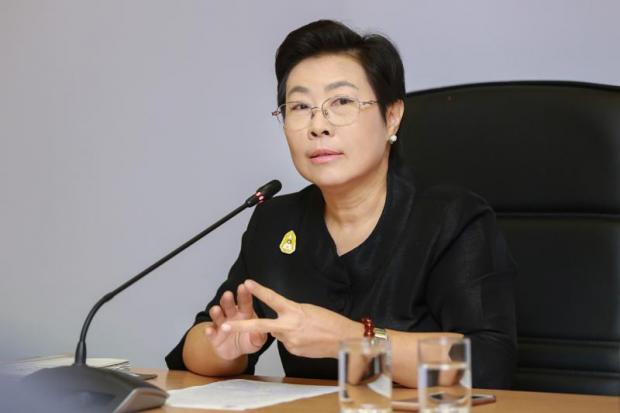
The Digital Economy and Society (DE) Ministry will recruit at least 1,000 trainers to educate people in 24,700 villages nationwide.
Digital literacy is the primary mission, said Ajarin Pattanapanchai, the newly appointed permanent secretary of the DE Ministry.
The scheme is intended to foster information communication technology (ICT) adoption by citizens, in line with the ministry's efforts to construct national broadband villages, slated to be completed by year-end.
Ms Ajarin said the national village broadband project will bridge the country's digital divide, but villagers still lack proper guidance on how to achieve digital literacy in making use of the broadband network.
The DE Ministry will collaborate with the education and interior ministries to recruit at least 1,000 trainers to help the villagers learn ICT skills, using social media and e-commerce activities.
The trainers will mainly be recruited from a pool of teachers at non-formal schools, academics and the TOT academy's staff.
In the first phase, each village will select one representative to participate in a training course and activities held by the DE Ministry. Afterwards, the trainees who pass the course will then teach others in the villages.
Ms Ajarin said the DE Ministry and related parties will continue creating training courses and teaching villagers to ensure long-term and widespread digital literary.
"Existing community centres and 2,280 digital community centres nationwide will be used to conduct educational programmes and activities," she said.
Ms Ajarin was appointed by the cabinet to replace Wilailuk Chuliwattanakul, who was transferred to the Prime Minister's Office as a special inspector.
She was previously deputy secretary-general of the Board of Investment. Ms Ajarin began her new job at the DE Ministry on Monday.
The government started construction of the national broadband network for 24,700 villages nationwide in December last year. The network so far covers 18,000 villages, with the rest expected to be connected by year-end.
The development is part of government efforts to provide affordable high-speed internet access to low-income rural households.
State agencies under the DE Ministry, especially the Office of the National Digital Economy and Society Commission (NDESC) and the Digital Economy Promotion Agency, are also developing a digital ecosystem for the villages.
The mission of the NDESC is to transform traditional merchants into online merchants using an e-commerce marketplace platform called e-Village project.